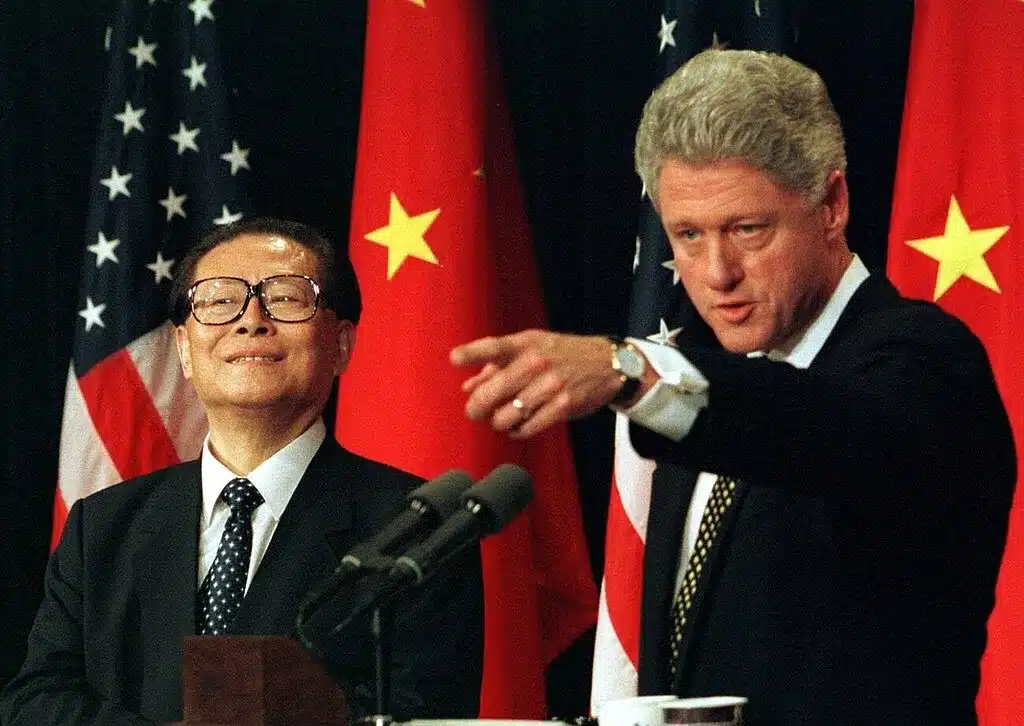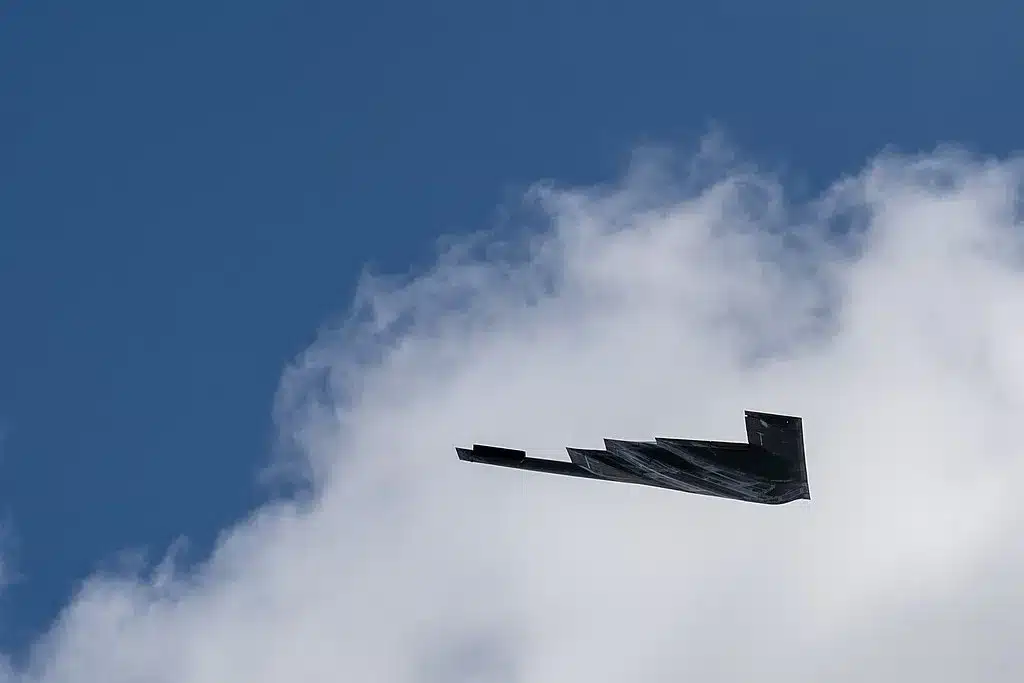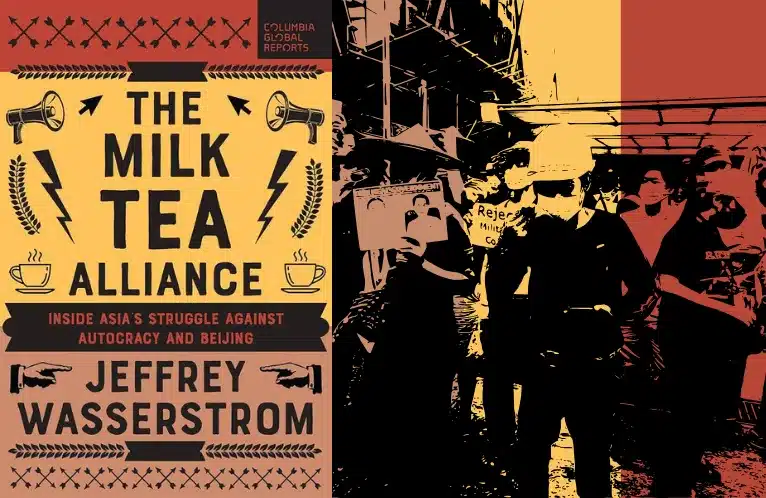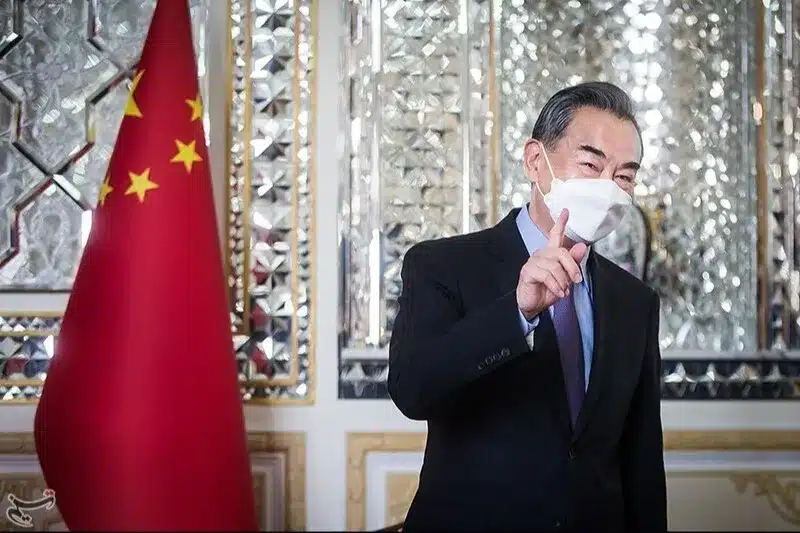Interview with Sara Newland: Taiwan’s Election, Subnational Exchange, and More
- Interviews
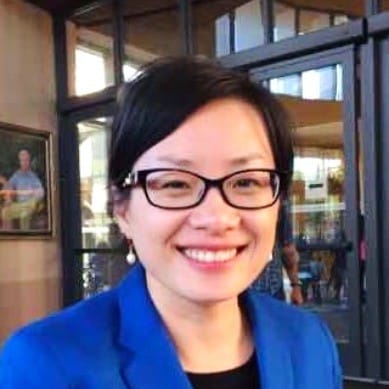 Juan Zhang
Juan Zhang- 12/23/2023
- 0
Editor’s note: Taiwan will hold the presidential election on January 13. How will the three major political parties — the Democratic Progressive Party, the Kuomintang, and the People’s Party — compete with each other on election day? What impact will different election results have on cross-Strait relations? At the most tense moment since the establishment of diplomatic relations between China and the United States, how will Taiwan interact with the United States? What is the state of subnational relations between China and the U.S.? Regarding these issues, U.S.-China Perception Monitor did an interview Professor Sara Newland of Smith College.
Newland is a scholar of local politics in China and Taiwan, and seeks to understand the behavior of local officials as domestic public servants and as actors in international relations. Her new work focuses on subnational diplomacy, and in particular on the role that state and local officials play in the complicated relationships between the U.S., China. and Taiwan.
Taiwan will have a presidential election on January 13, 2024. Which aspects of the election are you closely following? Regardless of the election result, do you anticipate a significant change in the PRC or the U.S.’s respective policies toward Taiwan?
This year’s election is a competitive three-way race between candidates from the two major political parties, the Democratic Progressive Party (DPP) and the Nationalist Party (KMT), and a relatively new party, the Taiwan People’s Party (TPP), which centers around former Taipei mayor Ko Wen-je. Though Ko seems unlikely to win, he is popular enough to affect the results of the election, but what the effect will actually look like on election day is uncertain. First, most of Ko’s supporters are young voters who feel dissatisfied with both the KMT and the DPP. However, youth turnout is traditionally relatively low in Taiwan, so whether these voters will actually show up on election day is an open question. Second, if voters think their preferred candidate will lose, they may strategically vote for the second-best option instead. In this case, it’s not completely clear who Ko’s supporters would vote for. Ko emerged as a political force out of the Sunflower Movement, a 2014 mass social movement that was critical of KMT leadership and policies. In recent years, however, Ko has come to be seen as a “pan-blue” candidate, more closely aligned (especially in his views on China) with the KMT than with the ruling DPP. However, the KMT has chosen a vice presidential candidate, Jaw Shaw-kong, who has a pro-unification background that may alienate swing voters. In short, if Ko Wen-je’s supporters do decide to vote for someone else on election day, it’s not immediately obvious who that someone else will be, and they won’t necessarily all vote as a bloc.
The DPP’s candidate, Lai Ching-te, is the current vice president and has been clear about his intention to maintain the same approach to cross-strait relations as the current Tsai administration. PRC leadership views the DPP with great suspicion, assuming that they are secretly trying to push toward Taiwan independence, so if the DPP wins another term I think we should expect to see a continuation of China’s aggressive tactics toward Taiwan (regular military incursions into Taiwan’s air defense identification zone, for instance). We may also see Beijing try to use economic policy to punish Taiwan for re-electing the DPP (e.g. by imposing restrictions on certain imports from Taiwan). Beijing sees both the KMT and the TPP as much more pro-China than the ruling DPP, so I suspect we would see a decline in military pressure and an increase in communication between the two governments if either one won the presidency. In this scenario, Beijing would likely try to use economic engagement and government-to-government ties to encourage Taiwan’s government to move toward unification, despite the fact that there is little appetite for this among the Taiwan public.
You visited Taiwan in January 2023 as a member of the Harvard faculty delegation. Reading the trip report, one of the points that struck me most was that some Taiwanese politicians try to find a balance between trying to have the U.S.’s support and being careful not to be associated too closely with provocative statements or actions from the U.S. How do you interpret this phenomenon?
One big question in this year’s presidential election has been how to keep Taiwan safe in the context of rising threats from China and heightened U.S.-China tensions. It is clear that voters want to maintain the status quo—in other words, to maintain Taiwan’s status as a self-ruling democracy without formally declaring independence from China. The different political parties say that they all want to maintain the status quo as well, but have different ideas about how best to do that. The ruling DPP argues that the clear threat to Taiwan comes from China, whose military aggression toward Taiwan has risen considerably under Xi Jinping’s leadership. They see close ties to the U.S. as the best defense against the possibility of a Chinese invasion. By contrast, some KMT politicians have argued that close ties to the U.S. are actually making Taiwan less safe by pulling Taiwan into a geopolitical conflict between the U.S. and China. The idea of “America skepticism” (yimeilun) started to emerge in the local elections two years ago, and has remained a part of the political conversation during this campaign season. It is also a message that, not surprisingly, gets repeated and amplified by PRC media and by pro-unification media in Taiwan.
One of your papers examines the paradiplomacy conducted by Taiwan. Generally speaking, what are the forms or activities of Taiwan’s paradiplomacy? How would you assess their effectiveness so far?
Taiwan and the U.S. engage deeply and frequently at the subnational level, and U.S.-Taiwan paradiplomacy takes many forms. These include longstanding forms of engagement, like sister city and sister state relationships, agricultural trade missions from Taiwan to the U.S .to buy wheat and other agricultural products, U.S. state governors’ visits to Taiwan, and trade and investment promotion offices representing U.S. states in Taiwan. Taiwan’s government has also been quite actively pursuing new forms of subnational engagement. For instance, a number of K-12 school districts, universities, and cities and states have signed memorandums of understanding with Taiwan to increase educational cooperation under the auspices of the U.S.-Taiwan Education Initiative. Now that the Confucius Institutes have nearly all closed across the U.S., schools are seeking new ways of recruiting Chinese teachers and adding Chinese-language content to their curriculum, and partnering with Taiwanese educational entities seems like a useful way to do this while avoiding some of the concerns that the Confucius Institutes raised about Chinese government influence and control over events focused on “sensitive” topics like Tibet and Xinjiang. In the last few years, several state legislatures and the Chicago city council have also established Taiwan friendship caucuses that are modeled on the Taiwan caucuses in the U.S. House and Senate. These are a way to encourage legislative support for Taiwan at the city and state level.
Taiwanese officials understand the importance of winning allies who will advocate for Taiwan, and seeking out opportunities to educate the foreign public and officials about what Taiwan can contribute to the world. In recent years, China has very effectively constrained Taiwan’s ability to participate in international organizations and to maintain formal bilateral alliances, and as a result subnational engagement is a very important avenue for Taiwan to maintain ties to the U.S. and other supportive countries.
With U.S.-China relations becoming increasingly tense, have you noticed any changes in the dynamics or discussions in your China-related courses on campus?
Last year I conducted a survey of U.S.-based Chinese politics faculty to answer this question; the results are now published in PS: Political Science and Politics. On the whole, scholars feel that teaching Chinese politics has become much more complicated and difficult in the past five years. There are several reasons for this. Classroom conflicts—often between students who hold different positions on “sensitive” issues like the Hong Kong protests and human rights violations in Xinjiang—have become more frequent and can be quite difficult to resolve. Faculty who work with international students from China have devoted significant time and emotional labor to supporting students in the face of pandemic travel restrictions, rising anti-Asian sentiment in the U.S., and dramatic changes in Chinese domestic politics. Some faculty have themselves been the targets of anti-Asian bias on their campuses, or have reported incidents of Sinophobia and anti-Asian bias in their classrooms. Faculty also fear that they may face personal consequences—visa denials, for instance—for teaching about “sensitive” topics in their classrooms, though few report actually experiencing such negative consequences directly. On the whole, student attitudes about the U.S.-China relationship seem more fixed—rather than entering the classroom eager to learn about an unfamiliar topic, both American and Chinese students enter the classroom with strong pre-conceived notions about the two countries and the relationship between them, and faculty can have a hard time pushing back against these narratives and fostering genuine discussion and understanding.
California Governor Newson recently had a high-profile trip to China. Under the current heightened bilateral relations, how can sub-national ties contribute to the overall bilateral relations?
The U.S. must confront real security challenges associated with a stronger and more militarily aggressive China. However, there are many forms of U.S.-China engagement that can be mutually beneficial; treating every area of potential cooperation as a security threat is not in the U.S.’s best interest. For instance, there is good evidence that U.S.-China tensions and the resulting limitations on science collaboration have harmed U.S. science and innovation. And it will be difficult for the U.S. to make significant progress toward a green energy transition without partnering, in some way, with Chinese firms. Subnational ties can play an important role in stabilizing the U.S.-China relationship by helping to sustain economic and person-to-person ties. Many of these forms of engagement pose a minimal security risk, and can provide a bit of a counterweight to the quite hawkish tone of the conversation about China in Washington right now. That said, subnational governments do need to be aware of potential risks—for instance, in some cases Chinese government entities may pressure their subnational partners to cease engagement with Taiwan—and work together to push back against these kinds of pressure.


